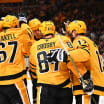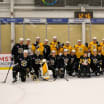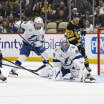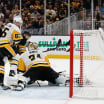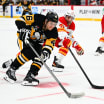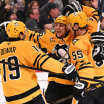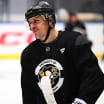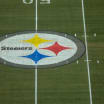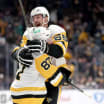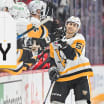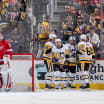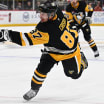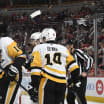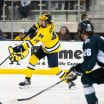The Pittsburgh Penguins ended their longstanding aspirations when they won the first Stanley Cup title in franchise history in 1991. With many of the same players returning for the following season, the team was already hoping to defend their title and repeat as champions.
Pens Repeat as Champions
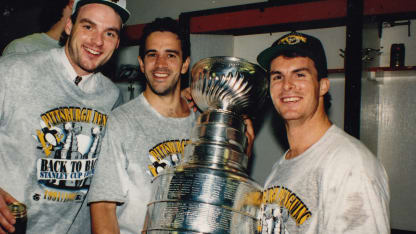
By
Sam Kasan
NewJerseyDevils.com
However, those hopes suffered a severe blow in the summer.
General manager Craig Patrick and head coach "Badger" Bob Johnson were having dinner together in Chicago. And Patrick could tell something wasn't right.
"(Johnson) was having trouble eating," Patrick said. "His mouth was kind of drooling out of the corner and slurring his words. So we got back to Pittsburgh and he got tested."
On Aug. 29, 1991 Johnson was diagnosed with brain tumors and underwent emergency surgery that evening.
While Johnson recovered, the team still had a season to start, including the beginning of training camp.
Scotty Bowman was named the team's interim head coach with the plan to relinquish the role once Johnson returned.
"We always had that ray of hope that maybe Bob someday would (return)," Bowman said. "I wasn't going to be anything but interim, and then all of a sudden October went by and November and Bob…"
On Nov. 26 Johnson passed at his home in Colorado Springs, CO at the age of 60.
"He meant a lot to me," Patrick said. "The players loved him. They just loved him. It's bad that it ended that way."
The Pens team chartered a flight to Colorado Springs for the funeral.
"It was devastating to all of us," said Mario Lemieux, who visited Johnson in the hospital prior to his death. "Bob was an amazing person first of all, great coach, always positive. It was tough to go see him at the hospital. You could see that the end was near and it was tough for all of us to be there and see that."
The Penguins held a candlelight vigil in Johnson's memory. Fans inside the Civic Arena held candles and that evening the Pens defeated the New Jersey Devils, 8-4, in the most poignant game in team history.
"That was pretty emotional," Joey Mullen said. "It was a great tribute to a great man."
With the passing of Johnson, Bowman took over complete control. But his team didn't have the best start to the season.
"We were kind of desperate to try and get better," Bowman said. "It was a tough time for everybody because Bob passed away, we knew time was not on our side, the team was just staying in the middle of the pack. And then all of a sudden we made another trade."
Following a stretch where the Pens went winless in six games (0-4-2) in February, Patrick shocked the world.
In a three-team trade with Los Angeles and Philadelphia the Pens acquired Rick Tocchet, Kjell Samuelsson, Ken Wregget and Jeff Chychrun while losing Paul Coffey (LA) and Mark Recchi (Philadelphia).
"That was tough to trade Recchi and Coffey off of a championship team," Bowman said. "But we needed help on defense. … Recchi was a great offensive player at the time and we had a lot of offense. We weren't looking for Tocchet's offense while we've got enough of it. We were looking for his toughness."
For Tocchet, Samuelsson and Wregget, they went from one end of the state of Pennsylvania to the other, switching sides in one of the NHL's best rivalries.
"When I was told I was traded to Pittsburgh, I wasn't as upset as I thought I would be," Tocchet said. "I didn't want to leave Philadelphia, but when I heard Pittsburgh I'm thinking, 'Mario Lemieux, Jagr, Joe Mullen, Ron Francis…' I'm naming these guys and I'm like 'I've got a chance to win the Stanley Cup.'"
The moves re-energized the team. Pittsburgh went 12-5-1 down the stretch and entered the postseason as one of the hottest teams in the league. They drew the Capitals in the first round, but things quickly fell apart.
The Pens lost three of the first four games and were on the brink of elimination in Game 5 in Washington. But the team's fate took a dramatic turn by winning three straight games to take the series thanks to a tactic change.
"The team jelled all of a sudden. We played really tight in Games 6 and 7," Bowman said. "We didn't leave much on the table for Washington and I think once we got by Washington the team just took off."
Following the Capitals was a dance against the President's Trophy-winning New York Rangers. Pittsburgh won the opening contest, but what happened in Game 2 changed the complexion of the series.
Rangers forward Adam Graves broke Lemieux's hand with a vicious slash. The Pens lost their captain for the remainder of the series. Meanwhile, New York took a 2-1 series lead and threatened to take a 3-1 lead in Game 4.
After the Game 3 loss Francis phoned his father and said, "Jesus that might be the best game I ever played in my life. We lost."
His father responded: "Yeah, you're probably right. That means you have to do it again."
Francis did just that in Game 4. He scored a hat trick, including the game-winning overtime goal to even the series at 2-2. No one knew it at the time, but the Pens would never lose again.
"I don't think I played as well in Game 4 as I did in Game 3, but the results were better," Francis said. "That's the bottom line in that situation down 2-1, you don't want to go down 3-1 heading back into their building. It was a big win for us and I feel things fell the right way for me, that I was able to get the hat trick and help us win."
"We went into New York and there was some young kid with long hair by the name of Jagr that decided he was going to take over the series."
Jagr scored the game-winning tallies in Game 5 and 6 to eliminate the Rangers and set up a rematch with the Boston Bruins in the Wales Conference Final. The Pens won Game 1 against Boston, 4-3, in overtime. Pittsburgh would outscore the Bruins 15-4 in the final three games for the sweep.
That set the stage for the most dramatic game in Penguins' history: Game 1 of the Stanley Cup Final against the Chicago Blackhawks.
Chicago took a commanding 4-1 lead in the contest. But the Pens would rally and finish off a come-from-behind victory with the help of two of the most iconic goals in franchise history.
Jagr took a puck along the near wall, juked one, two, three Blackhawks and then beat goaltender Ed Belfour to even the score at 4-4 late in the third period.
The game appeared to be going into overtime. But a final faceoff with 17.2 seconds left in the Chicago zone changed everything.
Francis won the draw back to Larry Murphy, whose shot was stopped by Belfour. The rebound kicked out to a wide-open Lemieux. No. 66 buried the shot with 12.6 ticks left on the clock to give Pittsburgh a 5-4 win.
"That might have changed the whole complexion of the series because we could've lost the first game at home and Chicago was on a run," Bowman said.
"Jagr scored that highlight goal and Mario scored at the last 10 seconds of the game. To me, when we won that game, I go 'We're going to win the Stanley Cup,'" Tocchet said. "You knew it was going to happen."
The Pens would finish off the Blackhawks in four straight games, winning their final 11 consecutive contests to repeat as Stanley Cup champions and successfully defend their title.
"That was my goal when I came here in '84, to win a few Stanley Cups for the city of Pittsburgh," Lemieux said. "I was fortunate enough to win two as a player."


